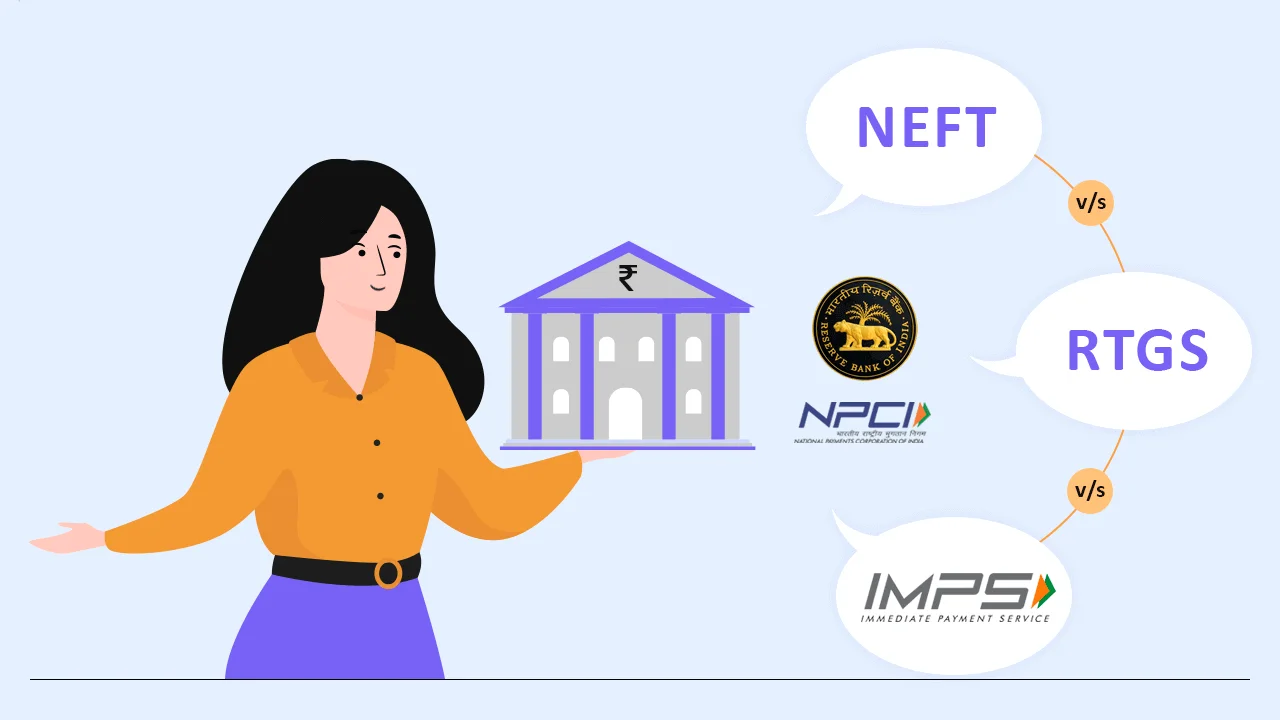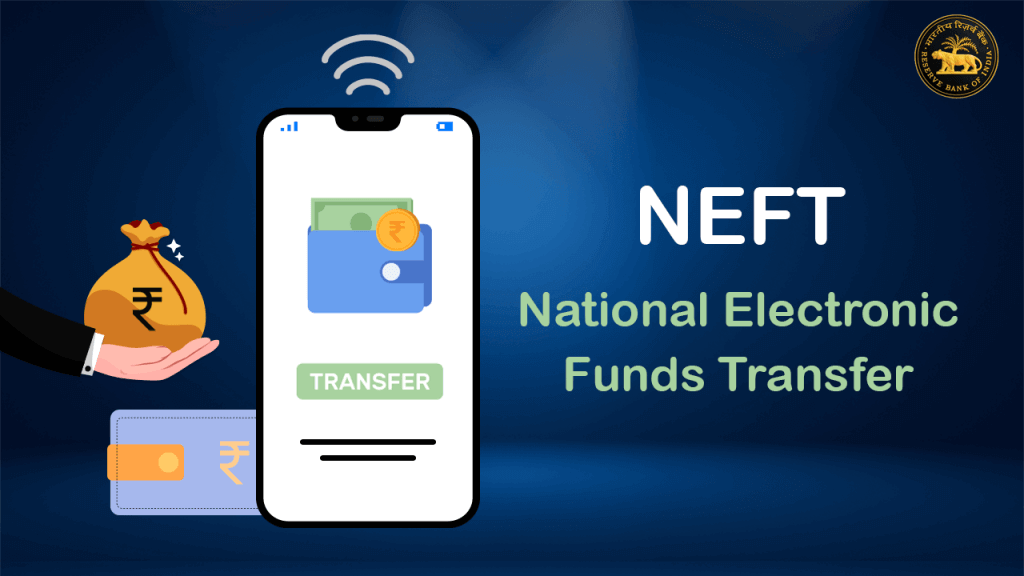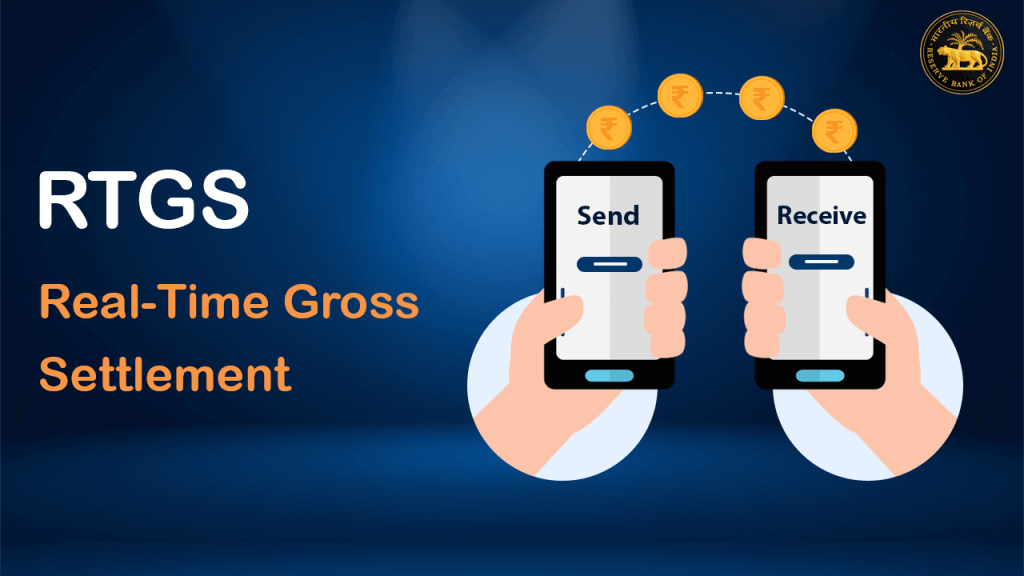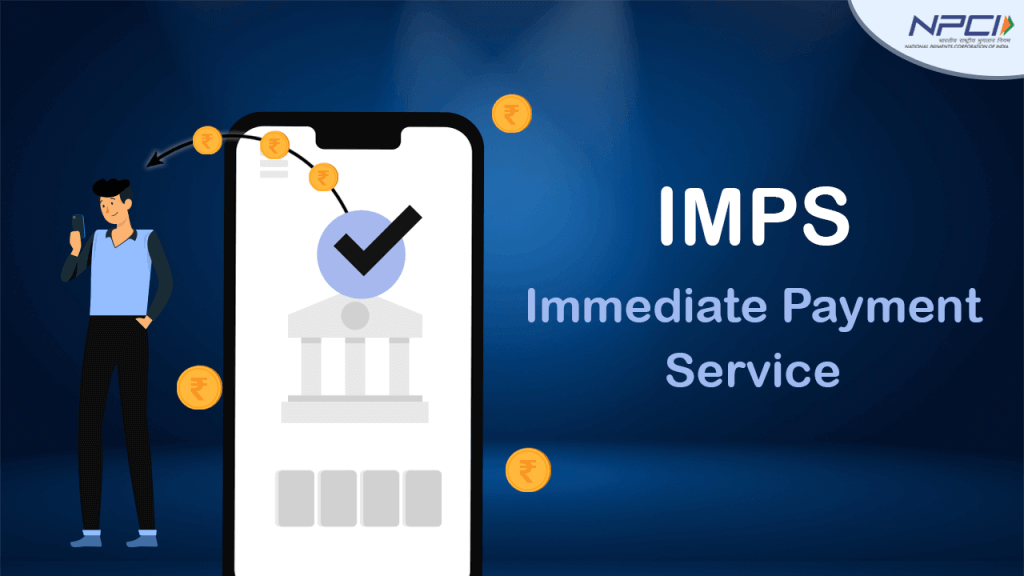
A few years ago banking services were sluggish. The customers had to stand in queue for hours at stretch to get the work done. This situation could be a nightmare for entrepreneurs because they always run short of time due to the scale of the work they are involved in. To save the valuable time of common man like you and me, RBI/NPCI launched three methods of online fund transfer which are: NEFT, RTGS, and IMPS. In this article, we are going to explain the IMPS, NEFT, and RTGS differences in detail.
Important Banking Terminologies You Should Know
Network: Both the bank (beneficiary and payer) should be part of the scheme for a transaction to take place
Transaction fee: A fee that is levied by banks for transferring money digitally.
Fund transfer limit: The maximum amount that can be transferred in a given payment method.
Fund settlement speed: The time taken to transfer money from one bank account to another.
ACH (Automated Clearing House): An electronic network for financial transactions.
APY (Annual Percentage Yield): Effective annual interest rate.
Overdraft: Spending more than your account balance.
Routing Number: Identifies your bank in transactions.
APN (Average Principal Balance): Average loan/investment balance.
ATM (Automated Teller Machine): Self-service cash kiosk.
NSF (Non-Sufficient Funds): Insufficient balance for transactions.
Compound Interest: Interest on both principal and earned interest.
Wire Transfer: Secure electronic money transfer.
Certificate of Deposit (CD): Fixed-term savings with higher interest rates.
What Is NEFT?

‘NEFT’ full form in banking is National Electronic Funds Transfer which is available 24/7. Here, transactions are processed every minute. In other words, if I initiate a transaction at 10:03 am then the beneficiary will receive the transfer around 10:30 am. The best part of NEFT is that there is no upper limit on the amount to be transferred and is easy to do. All you need is a few details of the beneficiary to process the transfer.
Following is the list of details required to initiate the transfer:
- Name of the beneficiary
- Account number
- Account type
- Name of the bank
- IFSC code
Advantages Of NEFT
- Availability of service is 24/7 including public holidays
- Transfer is secured
- NEFT limit - No upper limit
- NEFT charges - No transaction fees
- No need to visit the bank
- Can pay your EMIs, utility bills and credit card bills
- Transaction confirmation is sent via SMS or email
How To Initiate NEFT Transaction
Below is the process you can checkout to start with NEFT:
Step 1 - Login to your internet banking
Step 2 - Open the fund Transfer tab. Select 'Transfer to other banks' (NEFT)
Step 3 - Add or select the beneficiary’s account number
Step 4 - Feed the amount
Step 5 - Accept ‘Terms & Conditions'
Step 6 - Re-check the details. If everything is fine, hit the transfer button
What Is RTGS?

RTGS is an acronym for Real-Time Gross Settlement. One of the best features of this service is that it works in real-time which means the transfer of funds takes place instantaneously. Rs. 2 lakh is the minimum amount one can transfer using RTGS and it can be processed online or directly from the bank.
RTGS was introduced particularly for transacting a high amount of money having said that the RBI has kept no upper limit on the amount of money to be transferred.
Advantages Of RTGS
- No additional fees are levied on RTGS transactions
- It is the fastest inter-bank transaction service
- Paperless transactions
- No need to visit the bank to initiate transactions
- Funds are credited to beneficiary’s account in real-time
- Can be processed from internet banking
How To Initiate RTGS Transaction
Step 1 - Login to your internet banking
Step 2 - Open fund Transfer tab. Select 'Transfer to other bank' (RTGS)
Step 3 - Add or select beneficiary’s account number
Step 4 - Feed the amount to be transferred
Step 5 - Accept ‘Terms & Conditions’
Step 6 - Re-check the details. If everything is fine, hit the transfer button
What is IMPS?

IMPS or Immediate Payment Service is an online fund transfer service developed and maintained by the National Payments Corporation of India (NPCI). It processes transactions in real-time and transactions can be initiated from Internet banking, ATM, or SMS. It is far simpler than the former two services and is designed for the use of the common man. The upper limit of funds to be transferred in a single transaction is Rs. 200,000
Advantages of IMPS
- Transactions can be initiated from mobile banking and ATM
- Transactions takes place instantaneously
- Service is available 24/7 including holidays
- Easy to initiate transactions
- Require beneficiary’s IFSC/MMID/Account no./Aadhar no.
Difference Between NEFT, RTGS, And IMPS
| Category | NEFT | RTGS | IMPS |
| Full form | National Electronic Funds Transfer | Real-Time Gross Settlement | Immediate Payment Service |
| Product of: | RBI | RBI | NPCI |
| Minimum transaction | Re.1 | Rs. 2 lakh | Rs. 1 |
| Maximum transaction | Rs. 20 lakh | Rs. 20 lakh | Rs. 20 lakh |
| Mode of transaction | Online + Offline | Online + Offline | Online |
| Settlement time | 2 hours* | Realtime | Realtime |
| Settlement type | Batch settlement | One-by-one settlement | One-by-one settlement |
| Service availability | 24/7 | 24/7 | 24/7 |
Over To You
This was all about the IMPS, NEFT, and RTGS differences. Entrepreneurs need to know the exact difference between each of them because it makes life simpler. Hoping we were able to explain most simply. Since you are here, why don’t you try using Munin - India’s cloud-based accounting and billing software. This software is an ideal solution for SMEs as it has all the features a business could need. In case there is anything you would like to know, feel free to reach out.
FAQs Related To NEFT, RTGS And IMPS
- What are the charges for IMPS transfer?
To encourage digital transactions, the Finance Ministry of India has lifted all the transactions from IMPS.
- What are the transaction limits in IMPS?
According to the circular of NPCI, one can transfer up to 2 lakhs in a single transaction.
- Which would be the best option if I want to transfer 30 lakhs per day?
As NPCI has capped the IMPS to 2 lakhs hence you should choose either NEFT or RTGS.
- What is UPI?
Unified Payment Interface (UPI) is a product of NPCI. It facilitated inter-bank peer-to-peer and peer-to-merchant transactions in real time without charging any additional fees.
- Is RTGS/NEFT possible with cash?
Yes, you can do RTGS/NEFT by visiting a bank where you hold savings or a current account.
- Which is faster: RTGS or NEFT?
NEFT transactions take about 2 hours in processing while RTGS transactions are processed in real-time.






